Students from Bandari Maritime Academy demonstrating how a prototype they developed to fight illegal fishing called Smart Selective Fishing Box works during the Kenya Blue Economy Debate at the Technical University of Mombasa (TUM)| Photo Mazera Ndurya
About 20 years ago, while on a tour of duty in Lamu, I met a man who at the time was the chairperson of the Lamu Seafarers Association, a respected man in matters to do with seafaring.
This is the man who regaled me with stories of their voyages from the Lamu port to the Middle East in the 1960s and 1970s using big sail boats. They used to transport cereals, mainly simsim, millet and sorghum then grown in Lamu. They would bring back clothes, jewelry, spices and other commodities.
Interestingly, the big dhows were assembled in Lamu denoting a vibrant maritime industry dating centuries. Fishing and seafaring have been there for many years along the East African Coast, which means blue economy has been with us since time immemorial. Lamu’s link with the world has been through the ocean.
Some important events that happened in Mombasa in October – The Blue Economy Innovation and Investment Summit held in Mombasa and the Kenya Blue Economy Debate that took place at the Technical University (TUM) have taken the blue economy discourse to new heights.
The two events, as experts note, show the focus shifting to innovation giving the youths leverage to fully harness the blue economy.
As the Blue Economy Summit was going on in Mombasa, from October 2 to 4, 2024, my mind drifted to the heroic and ingenious exploits that the people of Lamu have been accustomed to for centuries.
The Blue Economy Innovation and Investment Summit, organized by Sote Hub echoed the huge potential that exists but, largely, remains untapped.
The three day event sought to expand knowledge and opportunities that will foster the growth of the blue economy, leveraging on innovation and technology to fully exploit the potential.
“We in particular delve into sectors in which there are the greatest possible employment effects for women and youth– such as renewable energies, eco-tourism, circular economy, and waste management including biomass, sustainable agriculture and agricultural processing, Blue Economy (BE) and sectors with “green business models” in traditional sectors, such as transport and logistics or construction,” read the note from the event organizers.
Stakeholders in the Blue Economy Sector are now urging the government to provide more resources to enhance operations in various value chains, citing lack of funding as the impediment to progress.
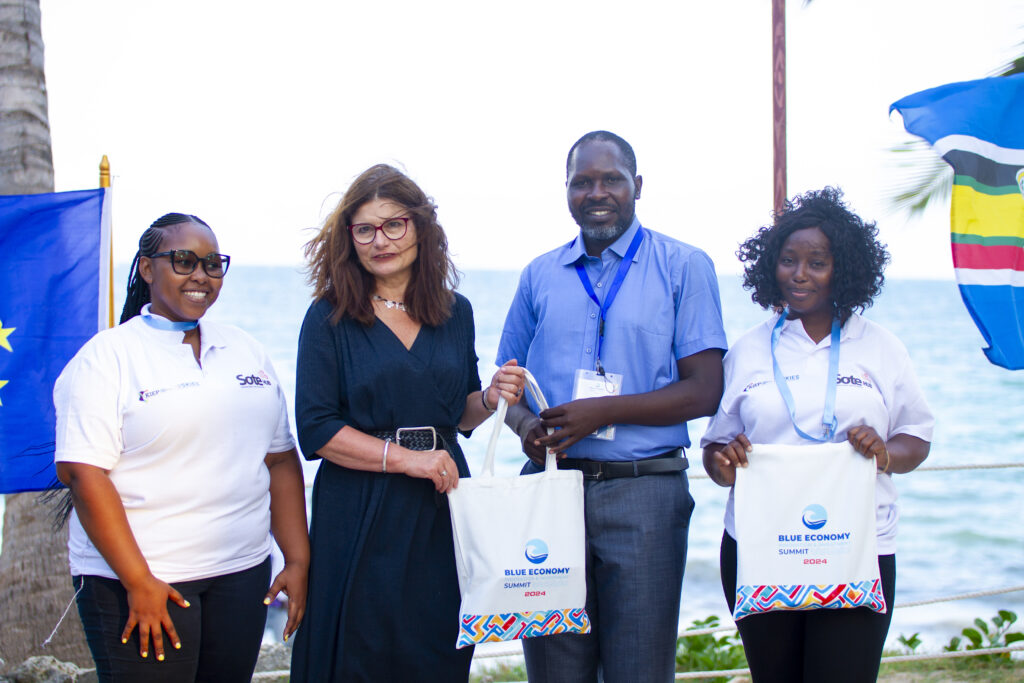
The Director of Sote Hub, David Ogiga, said the sector required better focus as it played an important role in providing job opportunities to women and youth and contributing to the country’s economy.
“Kenya raises a lot of revenue, approximately USD800 million (Sh103.6 billion), but only one per cent of it goes to the Blue Economy, and so forums like these aim at shedding light into the sector and bringing in more investors,” said Ogiga.
He termed the 2024 summit as successful given that over ten investors and at least four ambassadors participated in the forum, proving the significant role that the Maritime Sector plays in the country.
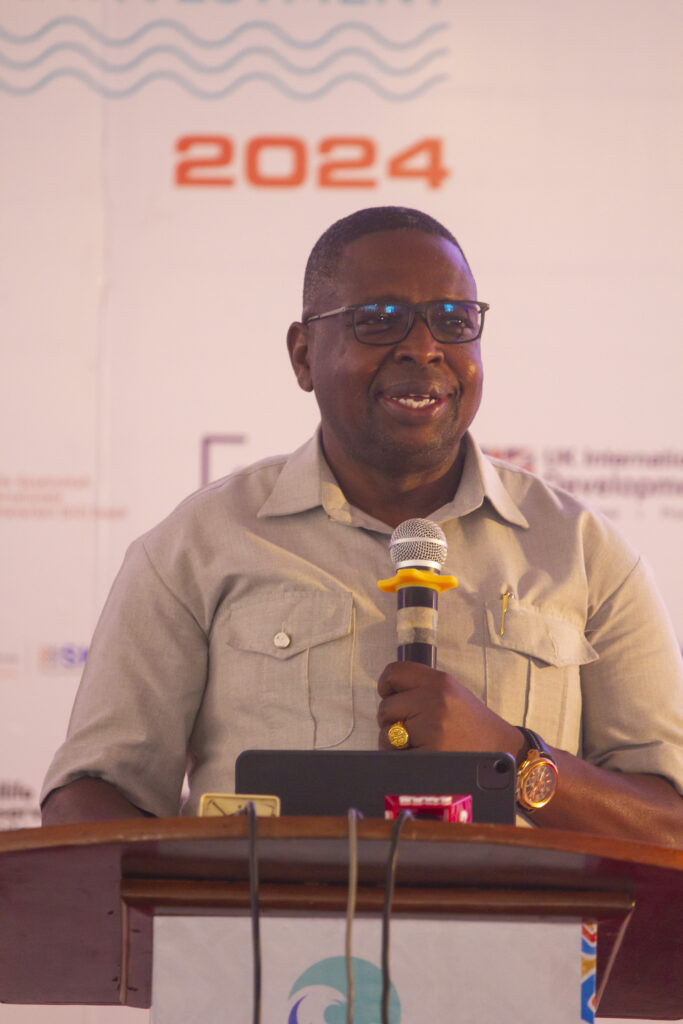
“This is a major milestone as it shows that not just in Kenya but the Blue Economy is an area of global interest; we also had 40 people from Tanzania participating in this event,” said Ogiga.
Maritime and Shipping Principal Secretary Geoffrey Kaituko, in championing this, believes the sector holds the promise of transforming Kenya into an economic powerhouse.
Speaking during the Summit with the theme “Building an Inclusive Blue Future” Kaituko said Kenya’s Blue Economy, a potential sleeping giant, must awaken.
“We’re barely scratching the surface, this sector can generate 20 times more than what we are currently seeing,” he said.
The statistics, according to the National Treasury, the Blue Economy contributes 2.5% to Kenya’s GDP, injecting KSh178 billion annually into the national economy. However, experts estimate it could contribute a staggering KSh500 billion yearly, if the right investments and strategies are implemented.
Kaituko foresees a future where shipbuilding, recycling, job creation and economic growth will be the key drivers to the economy.
Additionally, he cited a recent project where a local company secured a contract to build a vessel for Uganda, creating 400 jobs in the process. “Shipbuilding alone can create thousands of jobs if we focus on developing the industry,” Kaituko said.
“We need to be in the shipping business, both internationally and locally,” Kaituko emphasized. “We’re sitting on a goldmine, but we lack the infrastructure and investment to dig deeper.”
Experts say Kenya’s coastline is one of the richest in terms of resources, but it has been underutilized for decades. With the right investments in infrastructure, maritime education, and regulatory reforms, Kenya can position herself as a regional hub for the Blue Economy.
The European Union (EU) Ambassador to Kenya Henriette Geiger, a key player in the Sh3.2 billion Go Blue project, agreed with Kaituko’s sentiments.
“Many African countries are still living with their backs to the sea, and Kenya is no exception, but the potential here is enormous.” she stated.
The EU’s support has translated into practical solutions, such as the donation of five search and rescue boats to bolster Kenya’s maritime surveillance cautioning that international support is only part of the solution.
“No project lasts forever, Kenya must create a conducive environment for investments and ensure that local and national governments sustain these projects,” she said.
Kaituko’s exuded confidence sharing his passion, vision, and his unrelenting focus on unlocking the vast potential of the ocean saying such forums could be the spark that finally wakes this sleeping giant.
One thing that stood out at the Summit was the sterling showcasing of the innovations to address the critical issue of plastic pollution along the Kenyan coast. EcoWorld Recycling Director Steve Trott’s pitch at the summit highlighted waste –to-value innovations in promoting the circular economy through sustainable waste management.
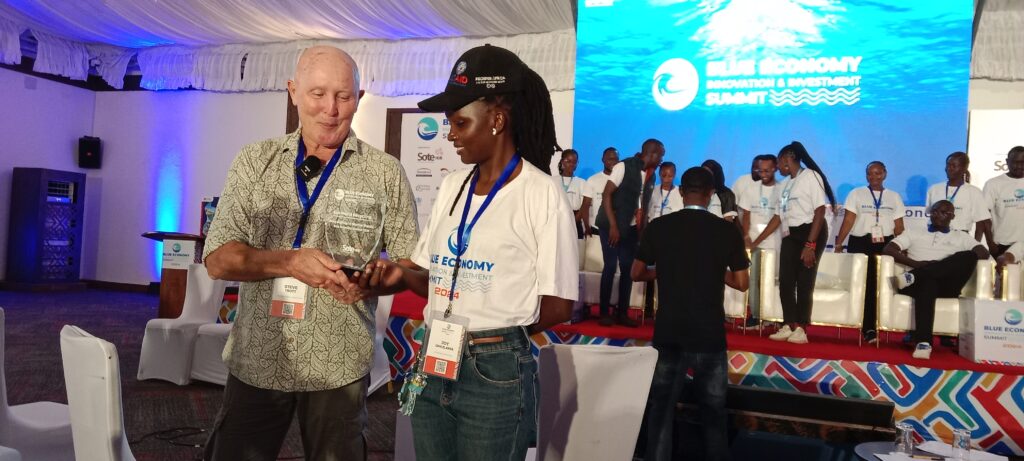
His presentation showcased how innovative approaches to recycling can drive both environmental conservation and economic growth. It demonstrated the role of green startups in transforming waste into resources, boosting local economies and protecting the oceans.
There were displays of innovations including the use of plastic and waste to make cooking gas and water tanks, all being championed by the youth.
At the Technical University of Mombasa just a month after the Blue Economy Innovation and Investment Summit, students from different universities and colleges bared it all in debating and showcasing their ingenuity on the blue space.
Event organizer, Dr Mariam Swaleh, Project Lead for Ocean Climate Innovation Hub, Kenya said the blue economy debate was created so that young people can have an opportunity to express themselves.
“It’s their chance to tell us what they know about the blue economy and what changes they feel, they can recommend as far as this phenomenon is concerned. In Kenya we have 600 kilometres of coastline and this means that this is an opportunity for Kenya to earn millions to the economy.”
She said the debate has been organized purposely to give the youths the opportunity to be part of the blue economy debate because they often don’t get the chance to engage on the subject.
“This event has brought young people from different universities in Kenya, including from as far as Masinde Muliro in Kakamega, Chuka and many universities and colleges from the coast region.
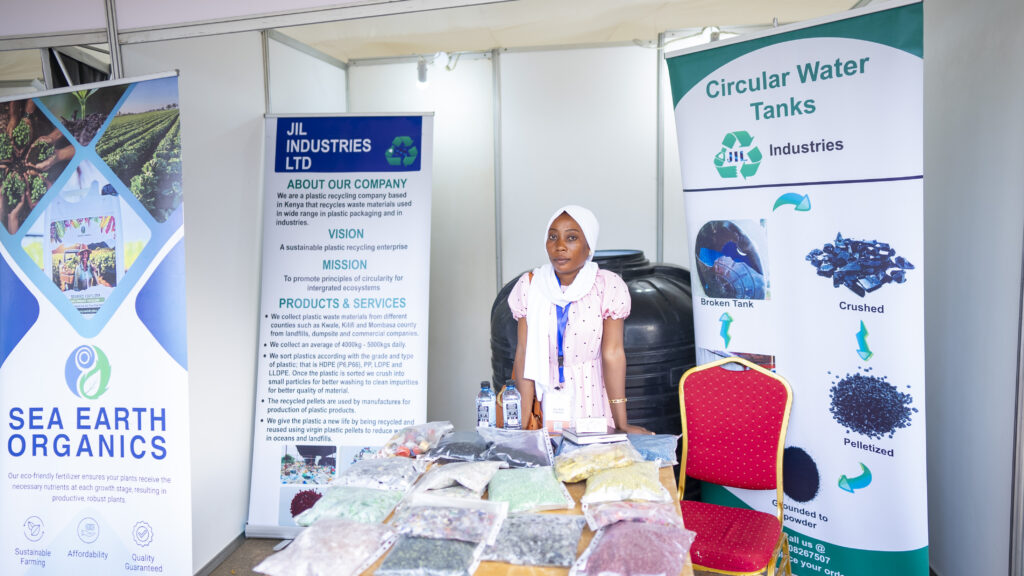
“There are over 100 students who have participated in this event classified as innovators and public speakers. This is the first time we are holding this debate that has been designed to involve the youths and we are planning to have it annually,” she told Media for Nature.
What has emerged from the two day event, Dr Swaleh says, the blue economy is still new especially to the youth. Many of the students who have participated in the debate are those studying marine science related courses.
“The students who are not doing marine related courses have told us that they faced several challenges and did extensive research to be able to compete effectively in the debate. I am happy that there is this impetus to know more about this sector.
“Some have said it was the first time they have gone out to interact and engage with other students and compete in a tough debate that requires one to have a grasp of the statistics, policies and laws relating to the blue economy,” she said.
This, according to Dr Swaleh, was a chance of a lifetime and to her, being able to host such a big number of students at the university, was a huge success.
One of the objectives of the Ocean Climate Innovation Hub, Kenya is to pass knowledge and finding a creative way of generating the knowledge. Dr Swaleh said instead of calling people to workshops and seminars to discuss the blue economy, the best way is to engage them to carry out research and discuss their findings.
“For instance, if we cannot influence policy, how can we identify the gaps in the policy and see how we can advise the key players such as county governments or the national government?
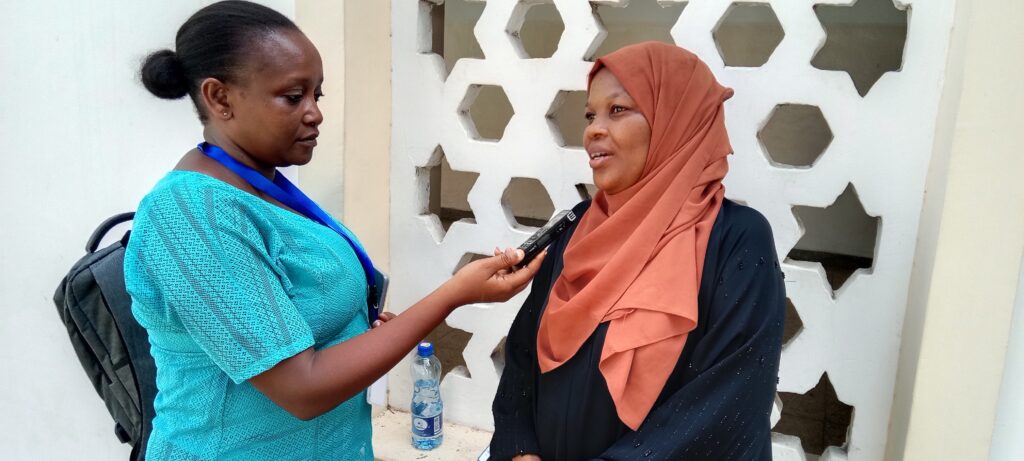
“We are going to do some analysis from the outcome of the debate to see where we can improve and also be able to help in filling the gaps. Many people perceive blue economy as just ocean related activities such as fisheries, maritime and seafaring, but in this event we have tried to bring in new aspects such as mining, renewable energy and other things that are emerging in our country such as how the ocean can contribute to food security,” said Dr Swaleh.
From Bandari Maritime Academy, Smart Selective Fishing box, a prototype developed by the students to fight illegal fishing stole the show and as student Abdalla Kamonde said, designing the gadget is aimed at introducing efficient way of fishing.
“The debate was awesome. The competition was tough but very enriching and we hope the organizer of this event could plan regular meets and rotating to all the colleges and universities here.
“We were debating here that the government should ban foreign fishing vessels from the Kenyan waters but that to us would be counterproductive instead we should regulate them. The prototype we have developed if approved and put to use would avoid overfishing. This gadget only allows mature fish to be caught and immature ones to escape through the nets,” he explained.
Tsofa Mweni, the Coast Regional Coordinator for the Wildlife Clubs of Kenya and one of the judges in the debate said blue economy is not a new thing as can be demonstrated by the centuries old maritime trade and fishing activities.
He said what is happening now is that there is a new and more focus on the sector that has a huge potential that remains untapped.
“Many areas in the coast region are bordering the ocean which has immense potential with many resources some of which have not been discovered or fully exploited. As wildlife Clubs of Kenya, we are now focusing more on the blue economy.
“In the past, we were only talking about national parks like Tsavo, marine parks but we are now focusing on the blue economy because we feel there is need for people to fully harness the God-given resource and using it sustainably,’ he said.
Tsofa said they have a bigger responsibility as WCK to educate school children about the blue economy and to use the resources well by conserving the marine environment.
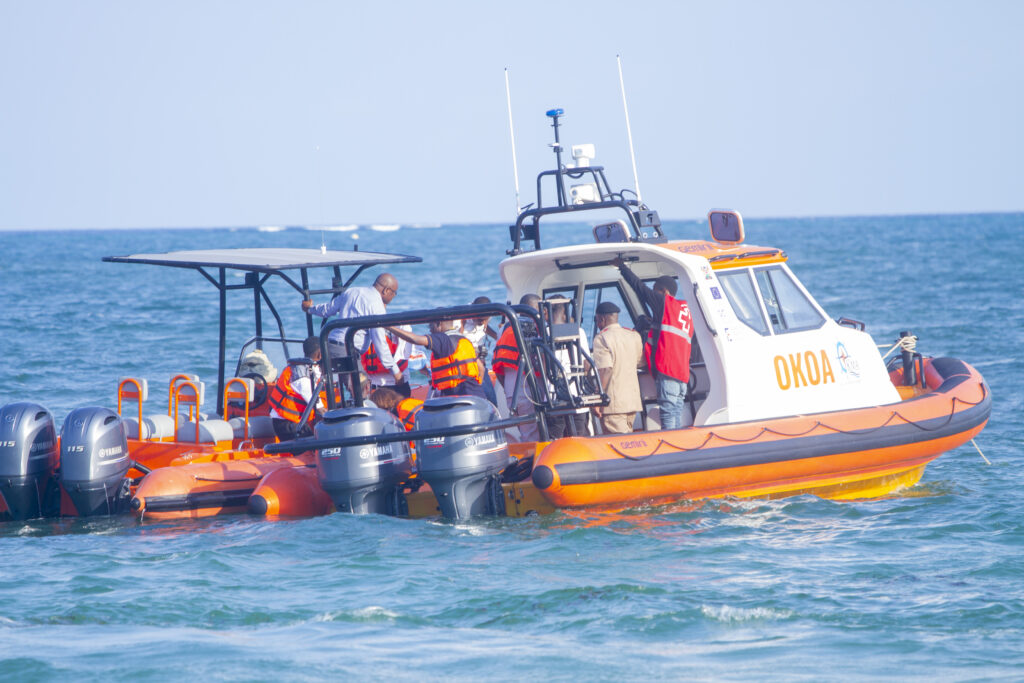
A student from Masinde Muliro University of Science and Technology, Obade Daniel pursuing a course in Global Health and Travel Medicine said when they had about the blue economy, sustainability, maritime and coastal resilience, that was what he had been waiting for.
“We took time to come here so that we can have a deeper understanding and make a contribution to the blue economy discoursed and because we are from the university of technology, we came to share ideas on how to harness the resources and above all, protecting what we have.
“The experience we have had in the last two days has been awesome and it has exceeded the expectations that I had. I have learnt more that the things that I even imagined,” said Obade.
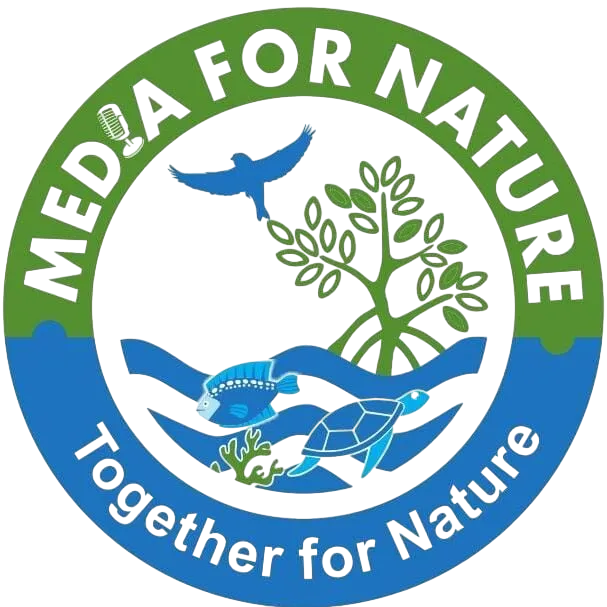
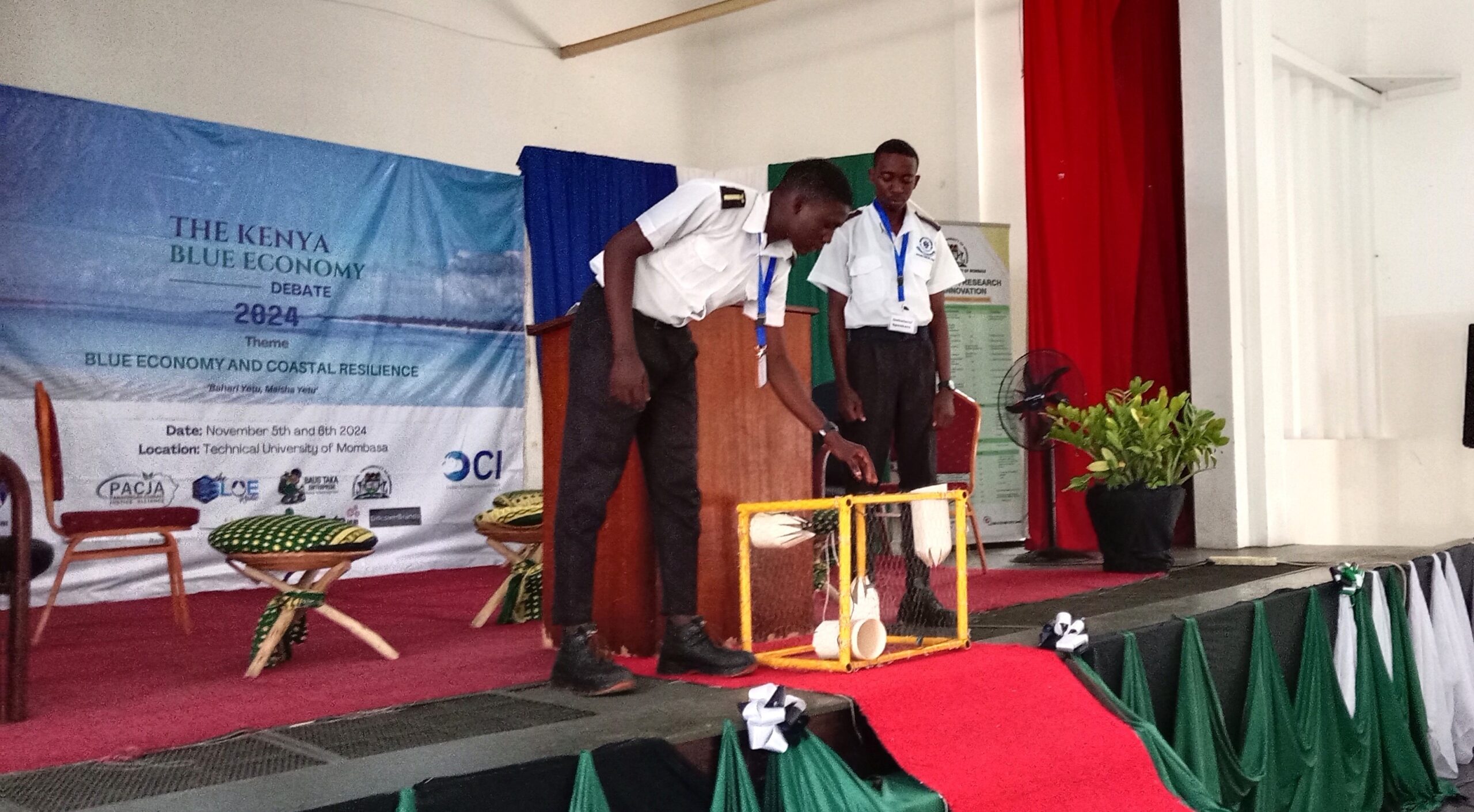
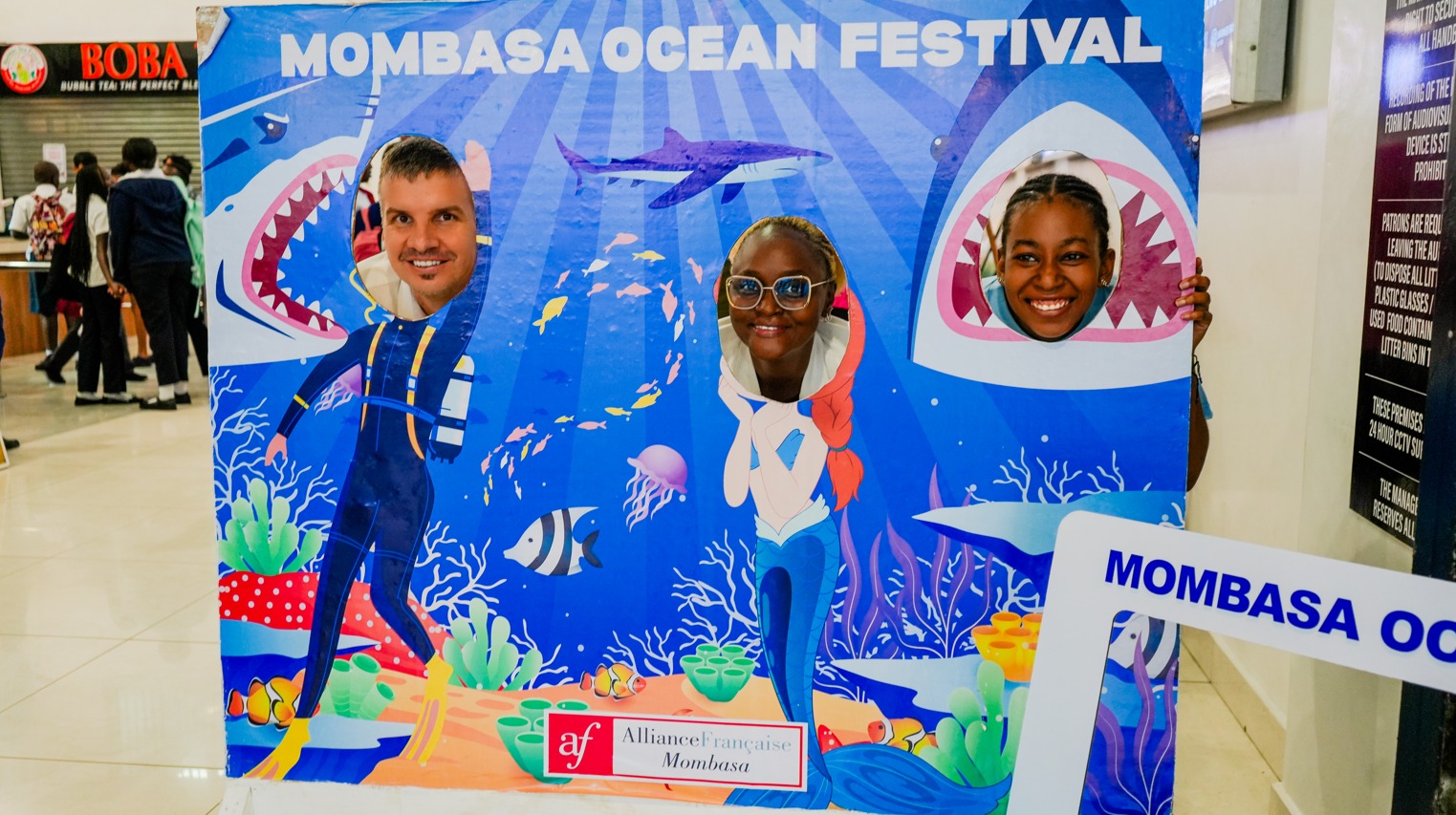
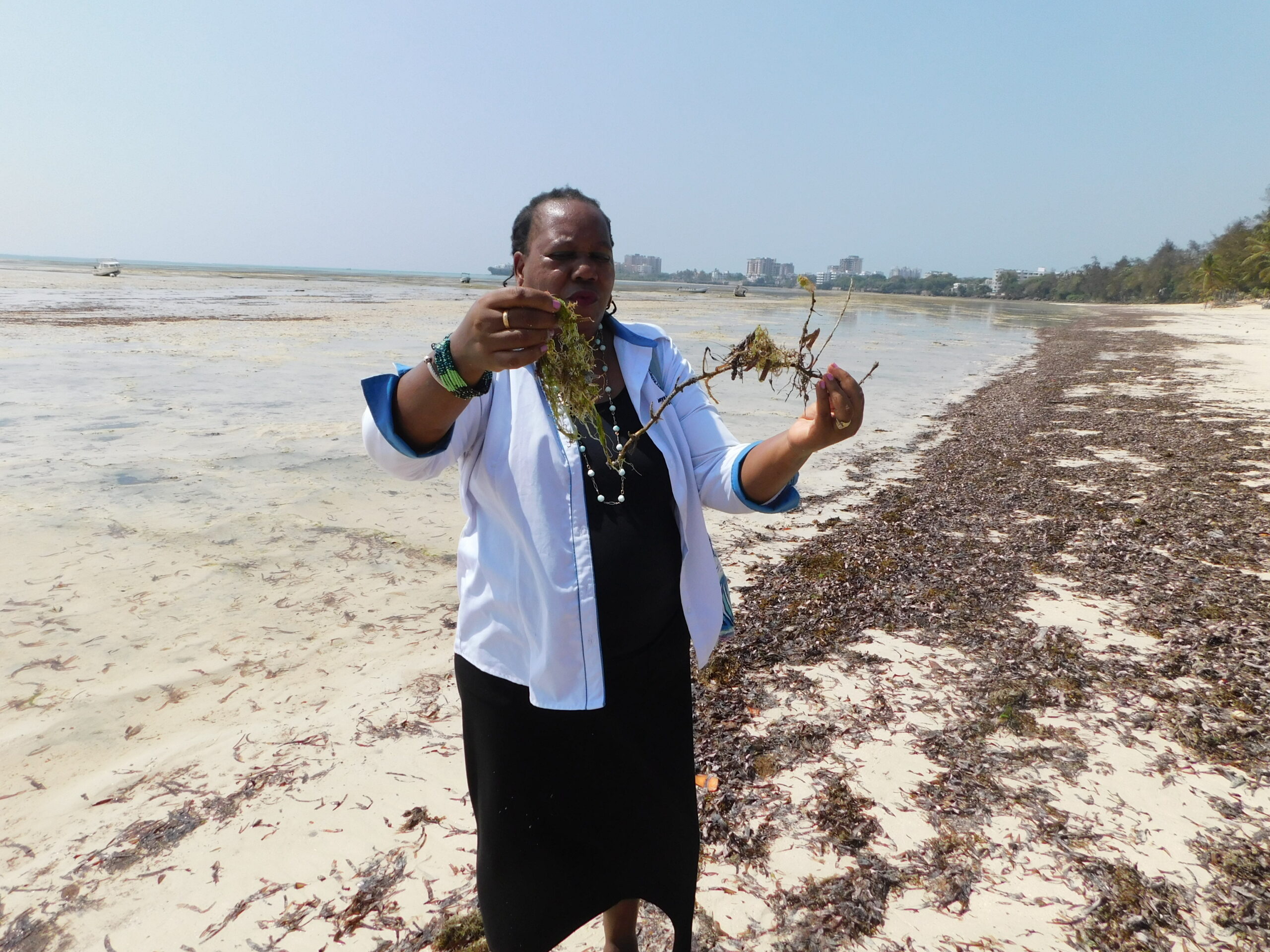
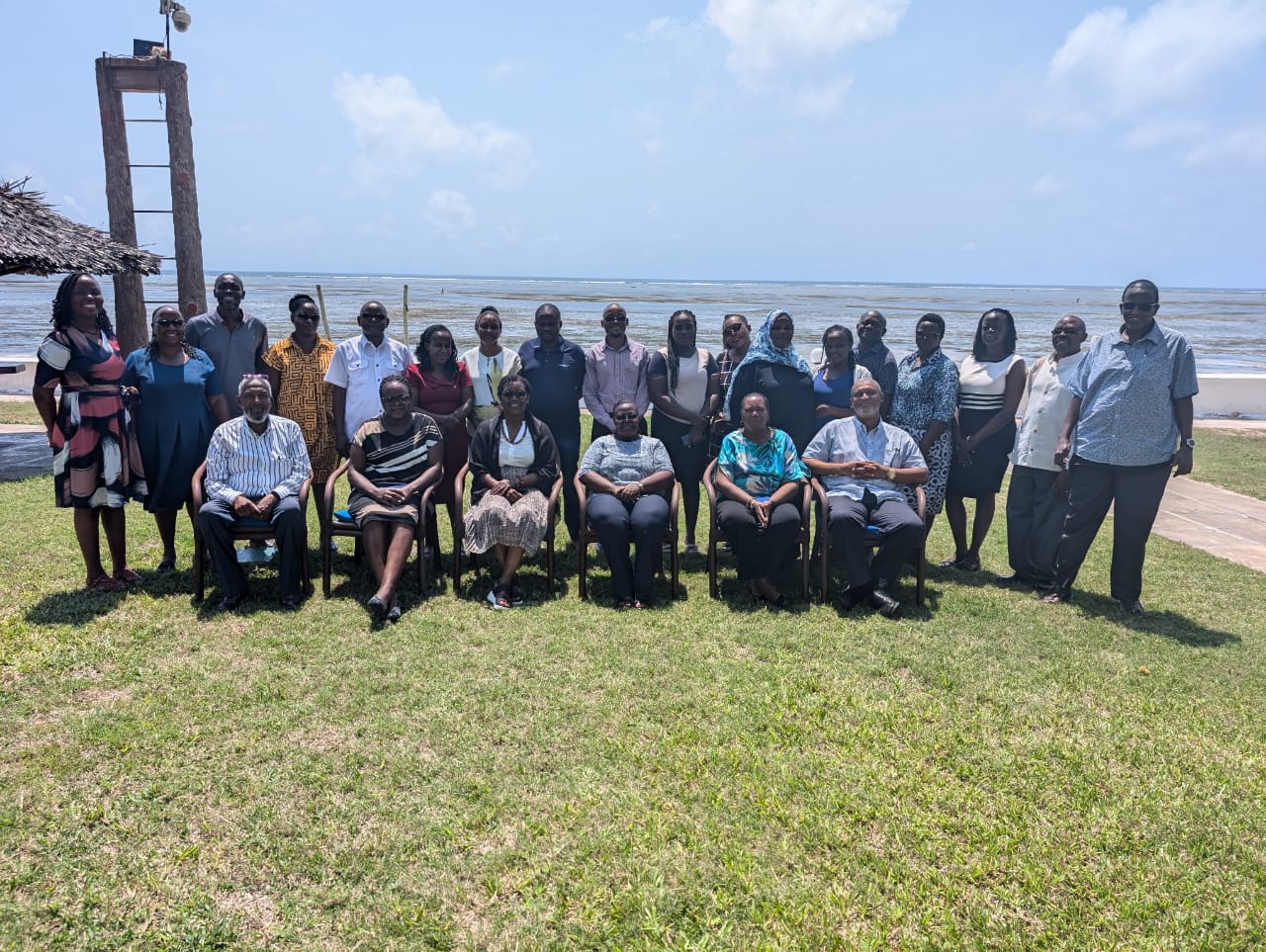
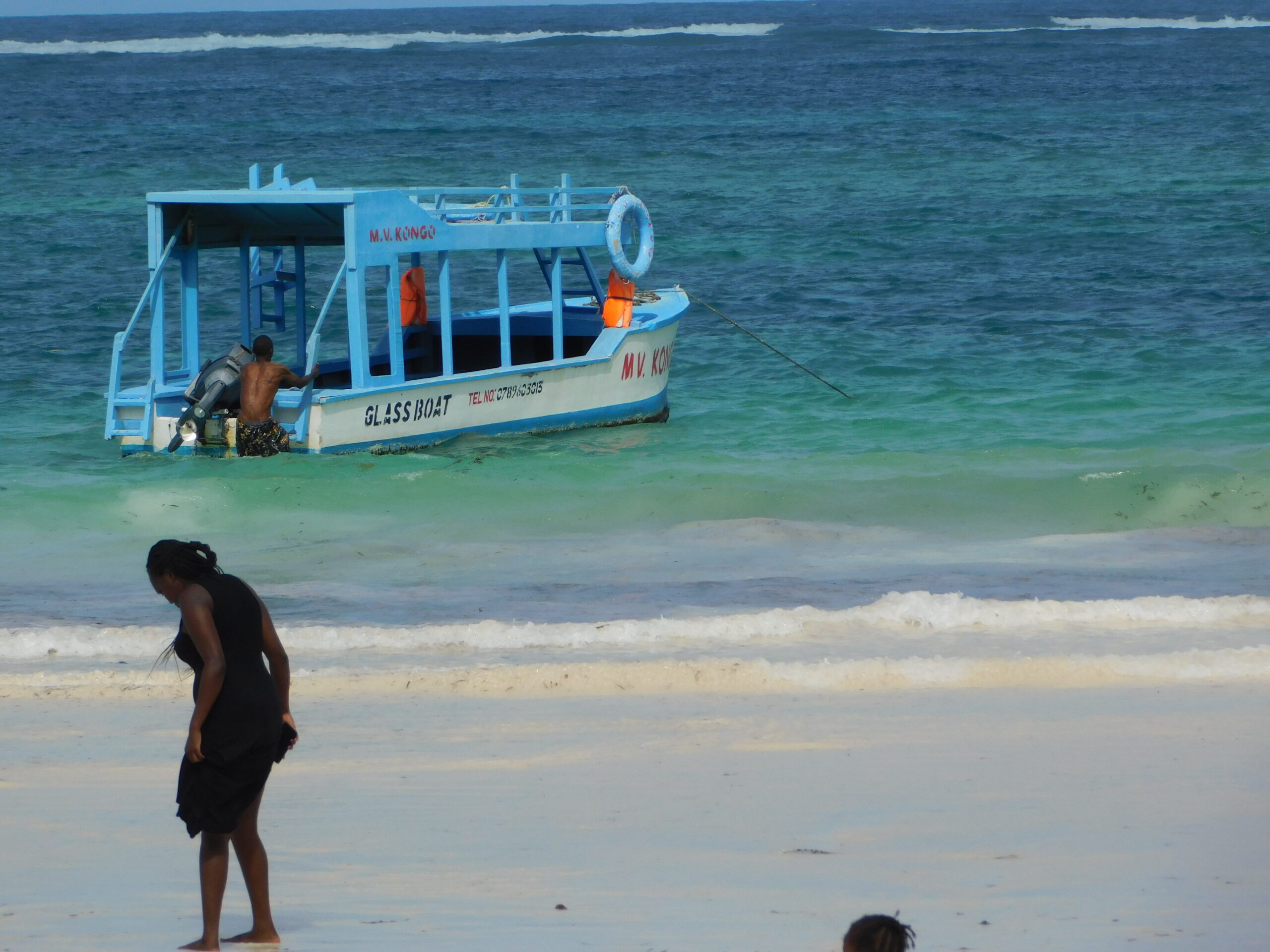

Great article.
Well done!